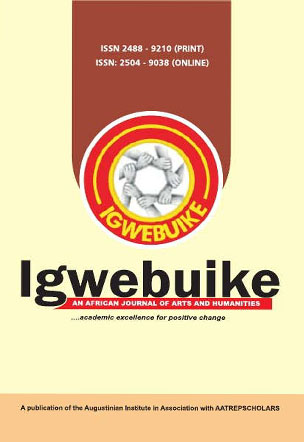
Vol. 9 No. 1, 2023
ABSTRACT
This article will examine the trends and patterns in Nigeria-U.S. relations, while tracing the features of development of the relations between citizens of both countries, starting from the export of slaves in the previous centuries to the Nigerian students in the U.S. in the mid-1940s and 1950s up till the attainment of independence in 1960. The section will also x-rays the development of political relationship between the two countries, from independence in 1960 to the era of emerging economic alliances from 1960 to 1967; the era of Nigeria-Biafra war between 1967 and 1970; the era of the oil boom 1970 to the early 1980s; the era of the Structural Adjustment Programme and economic dependence of 1983 to 1993; the era of embargo on Nigerian oil, 1993 to 1999. It will go forward to surveying the importance of the period between 1999 and 2015, which was the era which attempted to deepen democratic institutions in Nigeria. Each of these periods in NigeriaU.S. relations have shown to have a unique character in the behavioural pattern of policy makers in both countries as determined by the prevailing circumstances on ground during such periods.To this end therefore, the study has attempted to ascertain the extent of the challenges that have characterized the many years of relationship between the regional powers, and to achieve this,the research has adopted both the quantitative and qualitative approaches of research methodology.This will enable the interpretation of the data generated from both primary and secondary sources. Some of the findings and conclusions drawn from the study show that political, social, economic and security challenges responsible for the fluctuations that were observed in the bilateral relations between the two countries. The study therefore recommends that Nigeria should strengthen its foreign policy attention and resources in the bilateral relations with the US in areas that are potentially strategic to its national transformation and security
